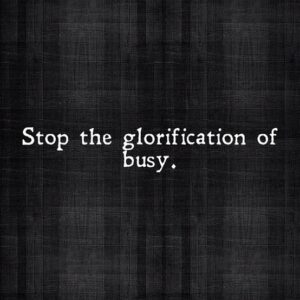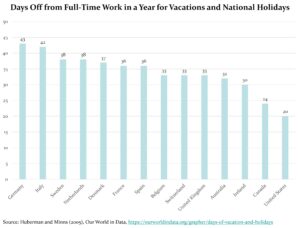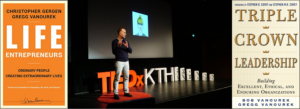Article Summary:
Many people struggle financially not only due to economic conditions and the job market but also because managing money can feel complex and overwhelming. They’re unsure of where to begin or what to do. Or they have money hang-ups and counterproductive mindsets that hold them back from achieving financial health. Here we give you the essentials of financial health, including steps you can take to build security, reduce stress, build wealth, and improve your quality of life.
+++
Financial health is about more than numbers and money. It’s a cornerstone of your overall quality of life. When your finances are in order, you have less stress. You gain the freedom to focus on what matters most—like your health, happiness, and relationships.
By understanding and managing your income, spending, debt, savings, and investments, you set the stage for both financial security and a life of your choosing.
10 Ways Your Financial Health Can Enrich Your Quality of Life
Having your finances in order can help:
- reduce your stress and anxiety
- give you more freedom and flexibility
- support your health
- boost your confidence
- take pressure off your relationships
- enable fun and meaningful activities and experiences
- build resilience against setbacks
- give you peace and comfort
- allow for generosity
- fund your dreams
“The highest form of wealth is the ability to wake up every morning and say, ‘I can do whatever I want today.’” -Morgan Housel, The Psychology of Money
So, how to improve your financial health? We walk through it below.
1. Financial Foundations: Managing Income and Expenses
Your financial foundations are about your income, spending, and budget. Think of them as the blocking and tackling of financial health.
Income
Here are top tips for approaching your income with an eye toward boosting your financial health:
- Monetize your strengths. Identify what you do best and what you love doing and then find ways to turn your strengths and passions into income.
- Increase your value. Continuously develop skills and expertise that make you more valuable in the marketplace.
- Seek growth opportunities. Pursue new projects or roles that enhance your experience and earning potential.
- Negotiate your worth. Ask for fair compensation that reflects your contributions and market value. And fight for it, if need be. Be prepared to walk.
- Diversify your income streams. Build multiple sources of income—such as side ventures, consulting, or investments—to reduce risk and give you more flexibility. Ideally, this includes passive income.
“The key to becoming wealthy is the ability to convert earned income into passive income or portfolio income as quickly as possible…. The rich do not work for money. They know how to have money work hard for them. Ordinary earned income is money you work for, and passive and portfolio income is money working for you.”
-Robert Kiyosaki, Rich Dad Poor Dad
Spending
The average U.S. adult spends roughly $18,000 each year on non-essential items and services, according to a 2019 estimate. In a 2022 survey, 36% of Americans said their garage was so cluttered with stuff that they could no longer park their car inside.
Here are top tips for how to approach your spending:
- Live below your means. Keep your expenses comfortably lower than your income to make room for saving and investing.
- Spend intentionally. Align your spending with your values and priorities, not mindless habits or social pressure.
- Distinguish needs from wants. Cover essentials first, then make mindful choices about discretionary spending. According to Jonathan Clements, “You’ll end up treasuring almost nothing you buy.”
- Delay gratification. Pause before a major purchase and ask whether your future self would approve of that expenditure.
- Track your spending. Awareness is power. Knowing where your money goes helps you make better decisions and stay in control.
“Spending money to show people how much money you have is the fastest way to have less money.”
-Morgan Housel, The Psychology of Money
Budgeting
Here are top tips on budgeting:
- Know your inflows and outflows. Track all your income and expenses to understand where your money is going. Use technology to help streamline this.
- Set clear categories and limits. Allocate funds for essentials, savings, investments, and discretionary spending.
- Plan for irregular expenses. Include annual or occasional costs (like taxes, insurance, or gifts) so they don’t derail your budget.
- Adjust regularly. Review and tweak your budget regularly to reflect changes in income, priorities, or goals.
- Use your budget as a tool. Treat it as a guide to make intentional choices and achieve your financial goals.
2. Building Reserves and Financial Security
Building reserves and working on financial security is about providing stability and peace of mind through savings, insurance, management of debt, and smart planning.
Savings
Here are top tips for handling savings:
- Pay yourself first. Treat saving as your first bill to pay each month, before covering other expenses. This ensures you consistently build financial security instead of relying on whatever money you may or may not have left over.
- Set clear goals. Define short-, medium-, and long-term savings goals. Fun examples:
- dream vacation fund
- dream wardrobe refresh
- “yes” fund (having money ready to say yes to spontaneous invites, last-minute trips, or new opportunities)
- Automate savings. Use automatic transfers to make saving consistent and effortless.
- Keep an emergency fund (of at least three to six months of living expenses). Prioritize liquidity for unexpected expenses to avoid going into debt.
- Review and adjust. Regularly check progress and increase savings as your income grows or your goals change.
“Do not save what is left after spending: instead spend what is left after saving.”
-Warren Buffett
Financial Security
Here are key actions you can take to enhance your financial security:
- Protect yourself with insurance. Health, disability, and life insurance (and perhaps umbrella insurance) safeguard against financial shocks.
- Plan for retirement. Contribute to retirement accounts early and consistently. And check your progress regularly. (Many brokerage accounts give you a retirement readiness score.)
- Plan for contingencies. Stuff happens. Think unexpected job loss (so common these days), major medical expenses, or urgent home or car repairs. Include backup income sources, legal safeguards, and estate planning.
Debt
By early 2025, 90% of Americans had debt and U.S. consumer debt had climbed to $18.2 trillion, with mortgage debt accounting for 70% of that, auto loans at 9%, student loans at 9%, and credit card debt at 7%.
Here are top tips for how to approach debt:
- Avoid debt as much as possible. If you do need it, borrow strategically. Only take on debt that helps build assets or increases future earning potential, like a home mortgage. Don’t borrow for depreciating items (like cars, furniture, appliances, or jewelry) or lifestyle consumption. Borrow only what you can comfortably repay.
- Prioritize paying off high-interest debt. Pay off credit cards and other high-interest loans first. They can make your debt grow rapidly and may cause it to spiral out of control quickly.
- Keep debt manageable. Ensure monthly payments are affordable relative to your income.
- Make and follow an aggressive repayment plan for debt you do have. Set clear goals and timelines for paying down your debt.
“…the single most dangerous obstacle to building wealth: debt…. Debt is a crisis that needs immediate attention. If you are currently in debt, paying it off is your top priority. Nothing else is more important.”
-JL Collins, The Simple Path to Wealth
3. Growth and Wealth-Building
Growth and wealth-building are about assets (things you own that can appreciate and build net worth, like your home or a rental property), investments (putting your money into things that can grow over time, like stocks, property, or other opportunities), and an intentional wealth-building strategy.
Assets and Investments
Here are top tips for how to approach assets and investing:
- Start early and stay consistent. Starting to invest early is wildly powerful because of the remarkable phenomenon of compounding: your money not only earns returns, but those returns also earn returns over time. The longer your money stays invested, the more it can grow. Even small contributions made early can become much larger over decades. By contrast, starting later means you have to invest much more to reach the same goal. In short: time is your most important ally in growing wealth. Time in the market is magic, while trying to “time the market” is a fool’s errand. (Because markets are hard to predict and frequent trading incurs costs, consistent long-term investing almost always outperforms trying to time the market.)
- Focus on long-term growth. Prioritize assets that appreciate over time rather than chasing short-term gains.
- Diversify your portfolio.* Spread investments across asset classes, sectors, and geographies to reduce risk. Ways to diversify:
- Spread your investments. Don’t put all your money into one asset, sector, or market.
- Mix asset types. Combine stocks, bonds, real estate, and other investments to balance growth and stability.
- Maintain geographic diversity. Investing globally can protect against localized economic or political shocks.
- Balance risk and reward. Include both conservative and growth-oriented assets to align with your goals and tolerance. Play both offense and defense.
- Understand what you own. Invest only in products, companies, or funds you understand and believe in.
- Review and rebalance regularly. Periodically adjust your portfolio to maintain alignment with your goals and risk tolerance.
“…the biggest lie in personal finance is that you can be rich if you just cut your spending….
Actually, the only ‘secret’ that I know to get rich is to grow your income and invest in income-producing assets.”
-Nick Maggiulli, “The Biggest Lie in Personal Finance”
“Thirty years from now, you’ll wish you’d invested more in stocks.”
-Jonathan Clements
4. Financial Planning and Strategy
Done properly, financial planning and strategy involves creating an overarching roadmap that addresses income, spending, savings, risk, and wealth-building.
Financial Planning
Here are top tips for approaching financial planning:
- Set clear financial goals. Define what you want to achieve in the short-, medium-, and long-term to guide your decisions.
- Plan for the future. Include retirement, education, and major life events or goals in your financial roadmap.
- Review and adjust regularly. Revisit your plan periodically to reflect changes in income, goals, or life circumstances.
Ask yourself: Am I on track to meet my financial goals and retirement needs?
Wealth-Building Strategy
A wealth-building strategy is a roadmap for growing your money, securing your financial future, and reaching your goals. Here are examples of things that could be part of your wealth-building strategy:
- Increase income strategically.
- Save and invest in diverse assets consistently.
- Aggressively pay down debt and then avoid it.
- Leverage appreciating assets, like real estate or investments, to grow net worth.
- Take advantage of tax-advantaged accounts (e.g., retirement accounts).
- Minimize investment fees and expenses (via low-cost funds and accounts).
Take Charge of Your Finances
Taking charge of your finances is essential. It gives you control, reduces stress, and creates freedom to pursue your goals. When you actively manage your money, you can make informed decisions rather than reacting to circumstances and facing nasty surprises.
For example, you can take charge by creating a budget, automating savings, aggressively paying down high-interest debt (or better yet, avoiding it in the first place), and investing consistently for the future. By taking deliberate steps, you can turn money from a source of anxiety into a tool that supports your wellbeing and dreams.
Put Your Finances in Perspective
Keep your finances in perspective. Money should support your life rather than dominate it. It’s a tool, not a measure of your worth or happiness. Letting financial concerns overwhelm you can take a toll on your relationships and wellbeing.
Be sure to prioritize experiences, relationships, and self-care. True wealth is a life that’s connected, meaningful, and joyful, not dollars in the bank.
Common Financial Traps
Many people unknowingly fall into common financial traps that can derail their financial health. Examples:
- Avoiding your finances, because it’s complex or uncomfortable.
- Blaming your financial challenges on external circumstances instead of taking full responsibility for them.
- Comparing your finances to others and resenting people for what they have.
- Postponing working on finances because you’re too busy.
- Thinking it’s too complicated for you. (It’s not.)
- Thinking it’s too late to become financially strong and then giving up on it.
Conclusion
Improving your financial health doesn’t have to be overwhelming or all-consuming. By intentionally managing your income, spending, debt, savings, and investments, you can build security, wealth, and freedom.
Small, consistent actions—like budgeting, automating savings, and diversifying investments—compound over time, giving you the security and space to live fully. When you align your financial habits with your values, you turn money into a tool that helps you craft a good life. Authentic alignment in personal finance allows you to channel your resources toward what matters most to you.
Is it easy? No. With high prices, a tough job market, and so much volatility, improving your finances can feel overwhelming. Give yourself grace. Get started with one or two steps. Then start habit stacking and see the momentum you build. And keep going!
Finally, don’t forget to be grateful for what you have—and not obsessed with or resentful of what you don’t have—and thankful to and mindful of all those who have helped you along the way, from parents and teachers to friends, coaches, and mentors. True wealth comes in many forms.
Wishing you all the best.
–Gregg
Tools for You
- Quality of Life Assessment so you can discover your strongest areas and the areas that need work, then act accordingly.
- Crafting Your Life & Work online course to help you design your next chapter and create a life you love.
- Traps Test (Common Traps of Living) to help you identify what’s getting in the way of your happiness and quality of life.
Related Articles
- “Taking Stock of Your Quality of Life”
- “How to Break Bad Habits and Create Good Ones”
- “Golden Handcuffs: Stuck in a Job You Don’t Like?”
- “Are We More Materialistic than We’d Like to Admit?”
- “On Spirituality and the Good Life”
- “Are You Trapped by Success?”
- “The Comparison Trap”
- “Beware the Disease of More”
- “The Trap of Caring Too Much About What Others Think”
Recommended Books & Magazines on Financial Health
- John C. Bogle, The Little Book of Common Sense Investing
- JL Collins, The Simple Path to Wealth
- Rachel Cruze, Know Yourself, Know Your Money
- Joe Dominguez and Vicki Robin, Your Money or Your Life
- Napoleon Hill, Think and Grow Rich
- Morgan Housel, The Psychology of Money
- Robert Kiyosaki, Rich Dad, Poor Dad
- Mel Lindauer et al., The Bogleheads’ Guide to Investing
- Paul Merriman and Richard Buck, We’re Talking Millions
- Dave Ramsey, The Total Money Makeover
- Grant Sabatier, Financial Freedom
- Sahil Bloom, The 5 Types of Wealth
- Eric Tyson, Investing for Dummies
- Kiplinger (personal finance magazine)
Related Podcasts on Financial Health
- Choose FI (Financial Independence)
- The Ramsey Show (Dave Ramsey and colleagues)
- Sound Investing (Paul Merriman)
*Appendix: Diversification Types for Your Investments
Here are examples of ways you can diversify your investments:
- Across Asset Classes: stocks, bonds, real estate, and cash or cash equivalents (e.g., savings or money market funds).
- Within Asset Classes:
- Stocks: large-, mid-, and small-cap stocks across different sectors.
- Bonds: a mix of government, municipal, and corporate bonds with varying maturities and risk levels.
- Geographic Diversification: domestic stocks and investments from international and emerging markets.
- Investment Vehicles: a mix of index funds, ETFs, and mutual funds instead of only buying individual stocks (these funds automatically spread risk).
- Sector Diversification: avoid concentrating too heavily in one industry or theme; balance exposure among sectors like technology, healthcare, finance, consumer goods, and energy.
- Alternative Investments: consider small allocations (if appropriate for your situation) to real estate investment trusts (REITs), commodities, or private assets.
- Liquidity Balance: keep an adequate portion of assets in liquid investments (like cash or short-term bonds) for flexibility and emergencies, with the rest in longer-term growth assets.
Postscript: Inspirations on How to Improve Your Financial Health
- “Wealth consists not in having great possessions, but in having few wants.” -Epictetus, Greek Stoic philosopher
- “You must remember to love people and use things, rather than to love things and use people.” -Archbishop Fulton J. Sheen
- “Don’t let your happiness depend on something you may lose.” -C.S. Lewis
- “Greed is a bottomless pit which exhausts the person in an endless effort to satisfy the need without ever reaching satisfaction.” -Erich Fromm
- “It is not life and wealth and power that enslave men, but the cleaving to life and wealth and power.” -Siddhartha Gautama (the Buddha)
- “Here’s the most fundamental finding of happiness economics: the factors that most determine our happiness are social, not material.” -Jonathan Rauch, The Happiness Curve
- “If you aren’t willing to own a stock for ten years, don’t even think about owning it for ten minutes.” -Warren Buffett
- “…the greatest reason for lack of financial success was because most people played it too safe. People are so afraid of losing that they lose.” -Robert Kiyosaki, Rich Dad Poor Dad
- “You should like risk because it pays off over time. But you should be paranoid of ruinous risk.” -Morgan Housel, The Psychology of Money
- “There are many things money can buy, but the most valuable of all is freedom. Freedom to do what you want and to work for whom you respect. Those who live paycheck to paycheck are slaves. Those who carry debt are slaves with even stouter shackles.” -JL Collins, The Simple Path to Wealth
Note: I can give you tips and encouragement, but I can’t make your investments magically grow. Investing is risky. I’m not a financial advisor, and this is general guidance, not investment advice. Handle your money wisely and maybe chat with a pro before hitting “buy.”
+++++++++++++++++
Gregg Vanourek is a writer, teacher, and TEDx speaker on personal development and leadership. He is co-author of three books, including LIFE Entrepreneurs: Ordinary People Creating Extraordinary Lives (a manifesto for living with purpose and passion) and Triple Crown Leadership: Building Excellent, Ethical, and Enduring Organizations (a winner of the International Book Awards). Check out his Crafting Your Life & Work online course or get his monthly newsletter. If you found value in this article, please forward it to a friend. Every little bit helps!


















